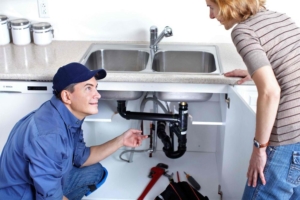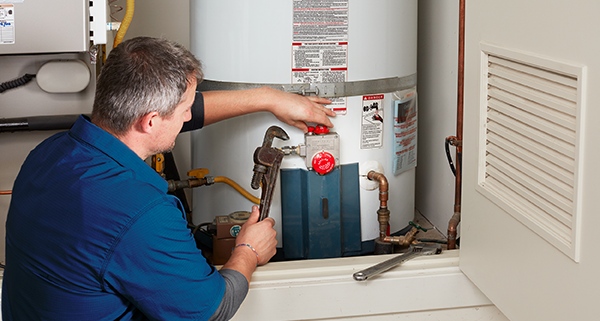Whether it’s an ordinary day or a special event, you’re frequently welcomed with delectable fragrances and joyful recollections when you’re gathered in your kitchen. It’s a place to eat, to converse, and to simply take in life.
Our kitchen sink drains work hard when we use a strainer or garbage disposal diligently. We wake up one morning to an unpleasant odor coming from the sink as a result of inevitable food particles, oil, and other undesirable items finding their way into the drain.
Therefore, why does this begin to occur?
Typically, there are two causes of a smelly kitchen sink:
- Food caught in the sink or garbage disposal that has gone bad
- A leak of sewer gas coming from the vent or drain trap
That’s the bad news – but here’s the good news: it’s totally fixable! That’s right – you don’t have to live with a stinky kitchen sink forever.
Tricks to Try If You Have a Garbage Disposal
- Hot water and dish soap: Start by running the garbage disposal while running a sink’s worth of hot, soapy water through it. This is the initial stage, and it might work. Stop the sink with a stopper and add several inches of hot water. Pour some dish soap in. To allow the water to flush through, turn on the garbage disposal and unplug the sink.
- Ice cubes, coarse salt, and lemon peels: The next thing to do is to check that the disposal blades are clean and free of any leftover, gummy food particles if you’re still smelling something unpleasant. The three-punch cleaning miracle of ice cubes, coarse salt, and lemon. Put some ice cubes and kosher salt in the garbage disposal. While the salt scrubs the sides of the grinder, the ice helps push food off of it. Repeat the flushing for good measure, and then grind some lemon peels for freshness.
- Vinegar and lemon ice cubes: Lemon wedges can be frozen in white vinegar, then crushed in the garbage disposal.
LOOKING FOR RESIDENTIAL PLUMBING IN ILLINOIS?
CALL NOW (847) 624-3872
Tricks to Try If You Don’t Have a Garbage Disposal
- Boiling Water: It is important to not undervalue the simple power of hot water. Don’t let water cool on the stove after you’ve just boiled it for something, like some pasta or a pot of tea. Pour it into the sink instead. This may be sufficient to eliminate weaker drain odours. If not, continue reading this list to increase the effectiveness of the cleaning, but you’ll notice that each advice is followed by a thorough hot water flush.
- Baking soda, vinegar, and boiling water: The most popular trick among readers for getting rid of sink drain smells? A bubbling, baking soda-and-vinegar mix, washed down with very hot water. 1 cup baking soda plus 2 cups vinegar. Pour the baking soda, then vinegar on top; it will bubble up. Let it sit a couple of minutes, then run hot water.
- Baking soda, salt, vinegar, and boiling water: Some readers fervently contend that adding coarse salt to the tried-and-true combination of baking soda and vinegar adds exactly the right amount of additional abrasion to remove the filth.
1/2 cup coarse salt
1/2 cup of baking soda
1 cup vinegar
Place each of these down the drain in turn. To get the bubbles to just work in the drain, cover the drain for around 30 seconds. The salt is said to add an abrasive element. After that, pour a pot of boiling water through to remove everything and dissolve any salt that is still present. Stop making a stink here!
How to prevent drain odour
It’s simple to stop your sink from smelling. A few healthy practices and regular maintenance are all that are required. Try these things:

- To prevent food chunks from entering your pipes, cover your plughole with a drain screen.
- Keep fat and grease out of the drain. Instead, before washing your cookware, soak or scrape away any fat with a kitchen towel.
- Pour any leftover water from boiling the kettle down the plughole to eliminate bacteria.
- Once a week, or if you’re going on vacation and won’t be using your sink for a while, pour baking soda down the drain.
- Plan routine service inspections. Your pipes will stay clean if a qualified plumber frequently inspects them.
Remember, if you have persistent or severe drain odour issues, it’s recommended to consult a professional plumber to assess the situation.
LOOKING FOR KITCHEN DRAIN CLEANING & REPAIR SERVICES IN ILLINOIS?





